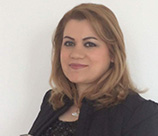



As the people of the Kurdistan Region prepare to head to the polls on September 25, 2017, in a historical referendum on Kurdistan's independence, we compare the economies of Iraq with other nations and ask, “What economic structure would a sovereign Kurdistan take?"
Read MoreThis is not a political opinion, but an economic point of view. Some people in the Kurdistan Region oppose the proposed referendum for independence just because it's adopted by a certain party, while others argue that this isn't the right time for a serious step like that as the Region is suffering from severe economic crisis.
Read MoreKaufmann et al (1999) defined "governance as the traditions and institutions that determine how authority is exercised in a country." Based on available literature including thoughts of neo-institutional scholars including, Douglass North and MancurOlsan, a positive relationship between the quality of institutions, governance structures, and economic growth is found.
Read More
Research Fellow
Ms, Paiman Ramazan Ahmad holds a B.A. in English Language from Koya University, and M.A. in International Affairs and Public Policy from Bilkent University in Ankara, Turkey. She has taught in the College of Languages at Qaladze/Koya University and worked as Director of the Office of Relations and Media at the University of Raparin. Paiman is completing her PhD in Political Science and Public Administration with a focus on State and Economics at the National University of Public Service in Budapest, Hungary. She is a distinguished scholar from the Kurdistan Region to Hungary and recipient of the Stipendium Hungaricum Scholarship Program. Her research interests include governance to support economic growth in developing countries, the politics of energy, the impact of migration on security, and women’s issues.